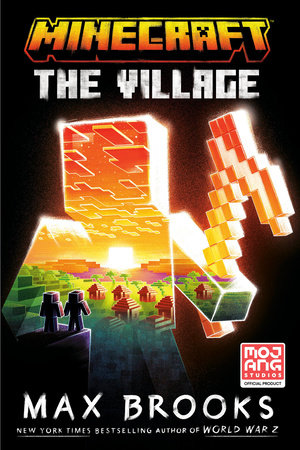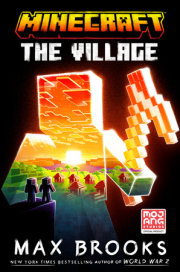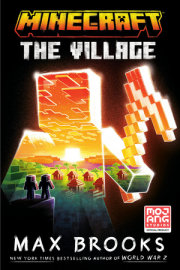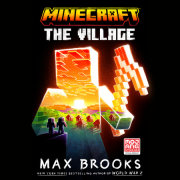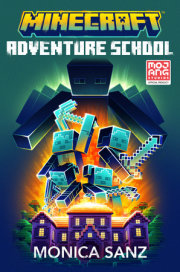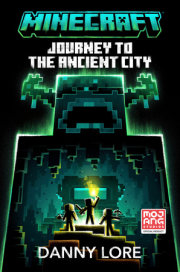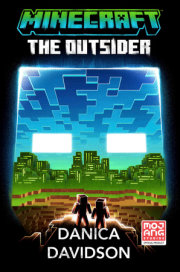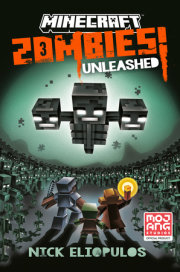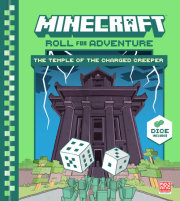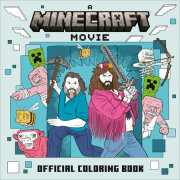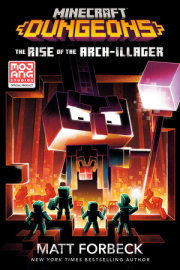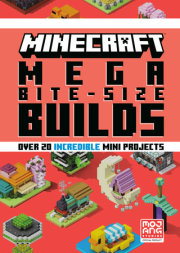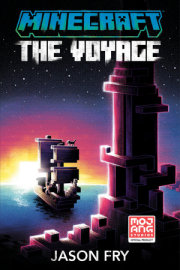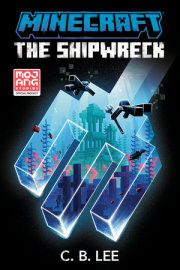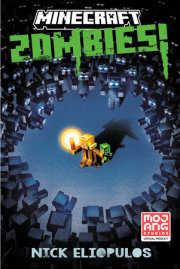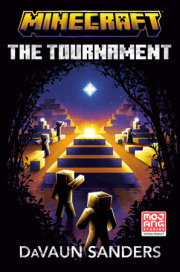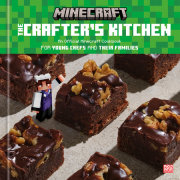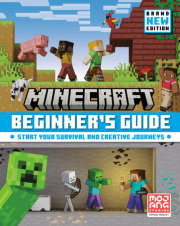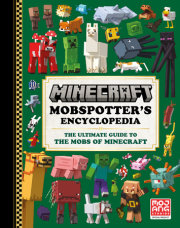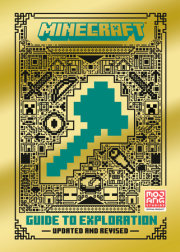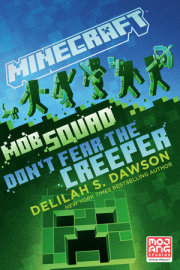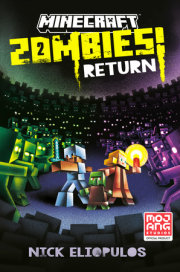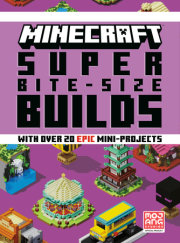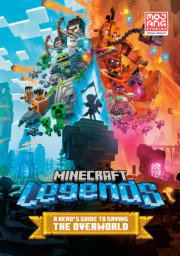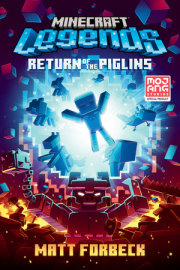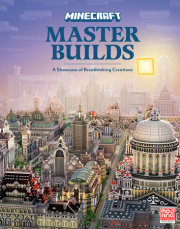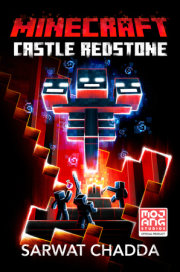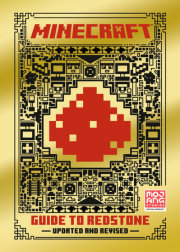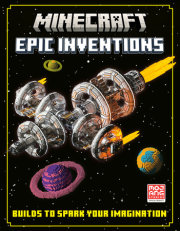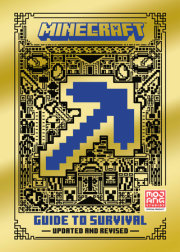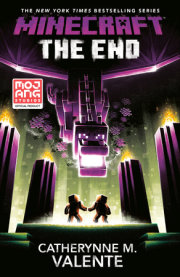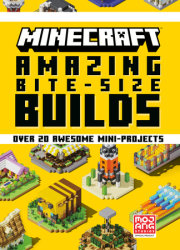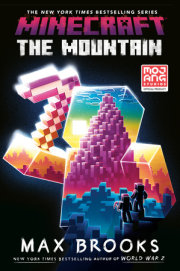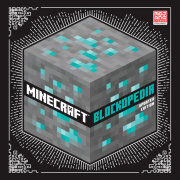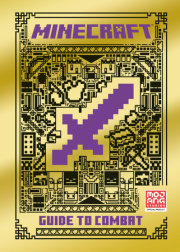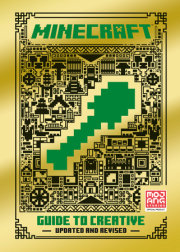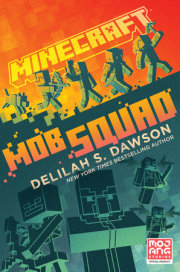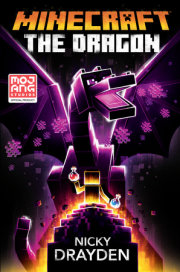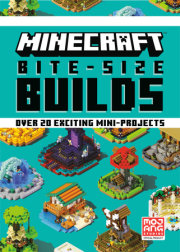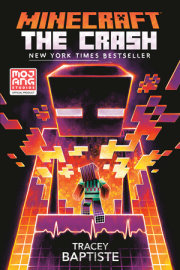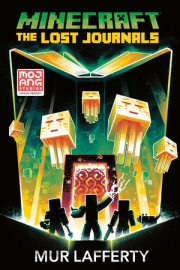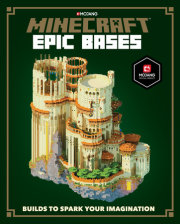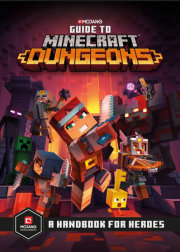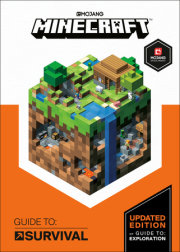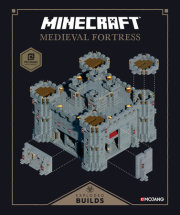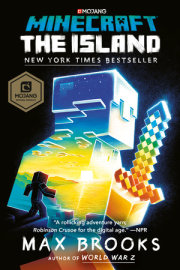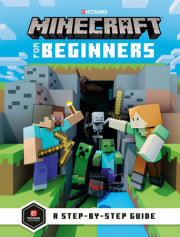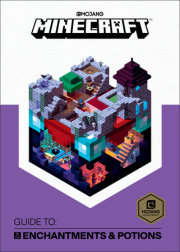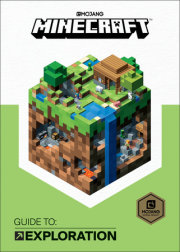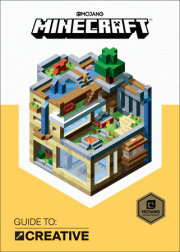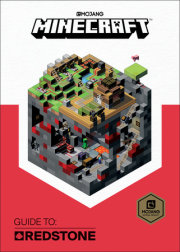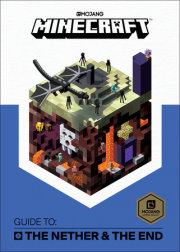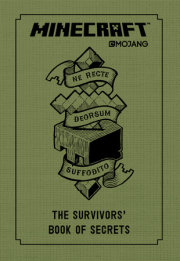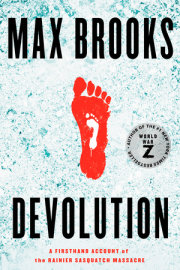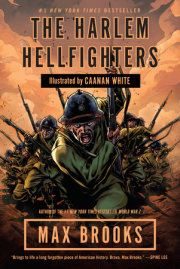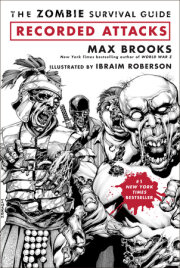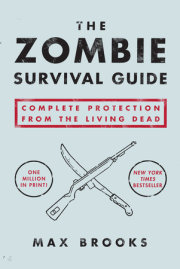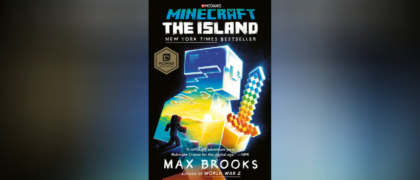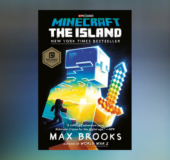CHAPTER 1“Are we headed in the right direction?”
Summer asked me this the moment we stepped out of her under-mountain fortress. It was a good question, and I wish I had a good answer.
“I don’t know.” I shrugged. “But this direction led me to you, so it seems as good as any.”
We were heading due west, crunching over the snow-covered taiga with the frigid wind at our backs.
“Swimming this way brought me to my island,” I continued, “and when I finally left, paddling this way brought me to you.”
“Can’t argue with that.” Summer nodded, then, focusing on the land ahead, declared, “We’ve got a lot of ground to cover before nightfall.”
Our plan for day one was to traverse this patch of taiga, then the forest, then camp at its edge before setting out across the next taiga. Day two would end at the jungle, the farthest Summer had ever been from her home base, and beyond that was the great unknown.
It was a simple plan, and very doable provided we didn’t run into any trouble. But it had started snowing, which cut down our visibility, hiding any early morning creeper or other night mob lucky enough to be sheltering in the shade of a lone tree.
That’s why Summer didn’t say anything more, not just because she was done pondering our decision (which she was) but also to concentrate on any potential hazards. Surface mobs weren’t the only danger out there. There were also those patches of thin, camouflaged “snowtraps,” like the kind I’d fallen through on my first night in this continent. Just thinking about it made me shiver; the covered hole, the freezing pond, the skeleton shooting from the darkness.
More of these natural threats had to be out there, along with the possibility of new ones. This world was always changing. It had happened at least twice since meeting Summer. New animals, new plants, and, in the case of the Nether, entirely new environments that had nearly gotten us both killed.
Had there been other, recent changes to the taiga? If there were, we wouldn’t have seen them. We’d been so obsessed with “electrifying” the mountain with redstone lamps that we hadn’t even been outside for a plunge in the nearby ice river. If the surface world had changed, we’d find out soon enough. Not that I was worried, though. I knew we could roll with whatever was out there. As I’d learned back on my island: when the world changes, you’ve got to change with it.
And I had, every time. The first change had gotten me the means to make the shield in my left hand. And the most recent world-morph had gotten me the crossbow now clutched in my right hand. I’d grown to really dig this new weapon, and to prefer it over the older stand-up bow. First, I could leave it cocked, which meant no straining or slowing my pace to draw. Second, and more important for me, it wasn’t a rapid-fire weapon. That might sound like a disadvantage, but at this point I was running out of arrows.
Why not just make more? Fair question, especially if you haven’t found the last two books I’ve left behind for other lost adventurers, but just know that I don’t kill animals for food anymore. I’d been too guilt-ridden since slaughtering my chicken flock back on the island. I’d tried not to think about that time, but recently I couldn’t help it. My original supply of arrows was running out, and, as you might know—or might not, if you’re new to this world—arrows can’t be made without chicken feathers.
What would I do? Start killing birds again? Or share feathers from Summer’s kills? I’d learned a long time ago that sometimes you have to compromise an ideal in order to save it, but I wasn’t ready to make that particular compromise just yet. Conserving arrows with a crossbow would, hopefully, buy me enough time to make up my mind.
And I hope you aren’t too annoyed with me for pulling you out of the story to go off on what seems to be a totally random tangent. Trust me, it’s not. Just like I did, you’ll see how important this moral quandary will be later. But, that morning, all that mattered were the dangers right in front of us. And fortunately, there weren’t any.
No new mobs, no new plants or animals, and, thankfully, no old threats like a carpet of thin “please fall through me” quicksnow. We reached the igloo where I’d first met Summer without incident, then continued on into the forest that bordered the white waste.
We stopped at the sweet berry bushes, which had appeared after the last change, and had a quick, flavorful snack. We’d brought plenty of food with us, but, as a general rule, it was always better to live off the land when possible. Personally, I was glad that Summer filled her belly with berries, because otherwise she might have turned her hunger on the next food source that ambled by.
“Mooo.”
Cows. The herd I’d met before, just like my best friend Moo from the island. Yes, maybe it wasn’t very original naming my mooing friend Moo, but Summer had named me Guy because I’m a guy. Simple, yeah, but meaningful, like when I named Summer after her warm, summer breeze laugh—and those are just first names! Just wait until later in this story, when we dig into some people getting their last names.
But that’s not for a while. Right now, what mattered were the cows in front of us and the other animals behind them.
“Baaaa.”
“Hey, flock,” I said to the sheep, “been a while.” I was pleased to see that they were all here, including Chippie, the brown lamb I’d helped spawn by feeding his parents when first meeting them. Fewer sheep would have meant more wolves, and since we’d eliminated the original pack a while ago, I was happy to see the new changes hadn’t brought more.
Okay, side note, I know you’re not supposed to mess with the balance of nature, right? Take out animal A that eats animal B, and soon animal B has multiplied out of control. But that’s in our world, right? Here, the fact that this herd hadn’t grown on their own showed that I’d actually preserved the balance by removing the predators. “No need to thank me,” I said to Chip, “and I’m glad there aren’t any new changes to the wildlife around here.” I looked up as a white fox skittered past. “I was thinking, since we already have polar bears, this world’s next change might give us grizzly bears, or . . . what are those mythical ape creatures that are supposed to lurk in the woods? Yetis, or Bigfoot?”
“Don’t be so paranoid,” Summer scolded between berry bites.
“Just waiting for the other shoe to drop,” I replied, then let out a snorting giggle. “Get it? Bigfoot? Shoe?”
Everyone just looked at me: Summer, cows, and sheep.
“Tough room,” I said with a shrug, “which I guess is our cue to keep going.”
“Just a moment,” Summer interjected and turned to climb a small hill.
“Where are you going?” I shouted up to her, waving my hands at her back. “We’re burning daylight.”
“Won’t be long,” she called over her shoulder.
I was about to keep pressing, wondering why she’d taken this sudden detour, but then I noticed the snow had stopped, and as she reached the top of the hill, I realized what she was up to.
Summer was looking behind us in the direction of her mountain and moving slightly back and forth. It’s a weird quirk of this world that faraway objects are always obscured by mist. One minute you don’t see a thing and then, just a step forward, it’s suddenly there. That’s what Summer was doing, crossing and retreating over the exact line where her mountain disappeared.
“She’s saying goodbye,” I told Chippie, “like in that one book or books? Or maybe it was a movie, because I distinctly remember how crazy talented the actor was in that scene.”
“Bah?” asked the little brown sheep.
“Oh, right,” I replied. “You probably haven’t seen it. It’s a magical fantasy about little people going on a big adventure, and in this early scene, that brilliant actor says something like ‘If I take one more step, it’ll be the farthest from home I’ve ever been.’ ”
“Bah.”
“Yeah, I guess it’s not exactly like what Summer’s going through,” I told Chip. “She isn’t technically leaving her home so much as setting off for her real one. But that mountain’s meant everything to her. She hollowed it out, furnished it, gave it heat and light. It’s kept her alive and safe for so long, and now she’s leaving it all behind . . .”
“Bah.” Chip’s retort clenched my stomach.
“Waddaya mean ‘if’ she leaves it all behind? She’s comin’ with me. We agreed. She—”
“Bah.”
I sighed. “Good point. I did keep making up reasons not to leave my island, and when I did, I almost turned my boat around and headed right back. And, now that I think about it, Summer and I almost ended our friendship because she was too scared to leave her comfort zone.”
Copyright © 2023 by Max Brooks. All rights reserved. No part of this excerpt may be reproduced or reprinted without permission in writing from the publisher.

